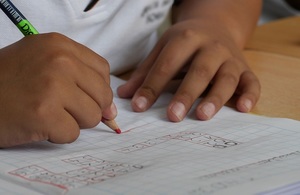Ofsted publishes short guide to what works well in remote education
Last week, the government published new guidance that strengthened expectations for the provision of remote education while schools and colleges remain closed to most pupils. Today, Ofsted has published some useful advice for leaders and teachers, aimed at helping them develop their remote education offer.
The advice has been written by the head of Ofsted’s research team, Professor Daniel Muijs, and draws on findings from Ofsted’s interim visits, as well as wider sources. It sets out some common myths about remote education and counters them with evidence-based pointers. The guide has been designed to help schools and colleges deal with some of the difficulties and challenges they face under current circumstances.
The guide sets out that the remote education curriculum should be aligned to the classroom curriculum as much as possible, and carefully sequenced to ensure pupils obtain the building blocks they need to move on to the next step. It suggests that whether learning is delivered through worksheets, textbooks, or via an online platform, it is a good idea to keep resources simple and straightforward to use. And feedback and assessment are still as important remotely as they are in the classroom.
From 18 January, Ofsted will resume monitoring inspections of schools judged to be inadequate at their previous inspection, as well as some schools graded ‘requires improvement’. Monitoring inspections look at the progress a school is making and encourage improvement. Unlike full inspections, they do not result in a grade.
Inspectors will look at how well schools are educating pupils in the current circumstances – which for most pupils means being educated remotely. Unlike during the first lockdown last year, the government has set a clear expectation that schools must provide remote education, so pupils can continue to learn away from the classroom.
Inspections will be carried out in line with the operational note published in December. A new framework for inspecting remote education is not required, as inspectors will be looking at it as part of the overall quality of education.
Inspectors will consider the school’s remote learning provision, to give reassurance to parents. They will also consider any complaints made by parents about remote education, to help resolve issues and make sure children are being well-served. If parents feel their child’s school is not providing suitable remote education, they should first raise their concerns with the teacher or headteacher. If issues are not resolved, they can report the matter to Ofsted.
Her Majesty’s Chief Inspector, Amanda Spielman, said:
Children and learners have lost a lot of education over the past year and there are understandable concerns, not least from parents, about how well children will learn during this lockdown.
So I’m pleased there are now clear requirements for remote education – something I have called for throughout the pandemic. Teachers, Heads and other school staff are working incredibly hard to keep education going and I hope they find our short guide useful.
It’s important in these challenging times that we return to our work in a constructive way. So we won’t be grading schools this term, but our inspections will consider how well children are being served, in order to provide reassurance to parents.
Monitoring inspections will be carried out in a proportionate way and appropriate to current restrictions. Inspectors will adhere to the required social distancing measures and other public health guidance. Ofsted is also arranging for inspectors to be tested for coronavirus before face-to-face visits.

